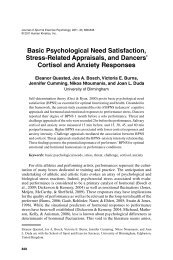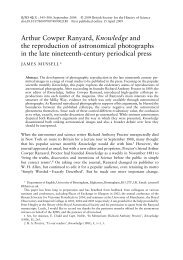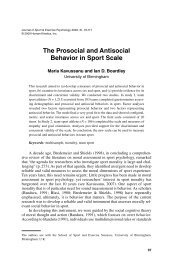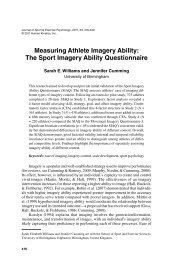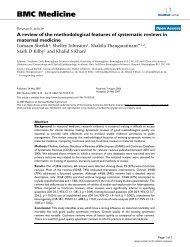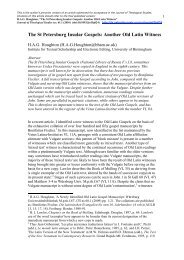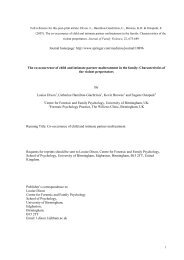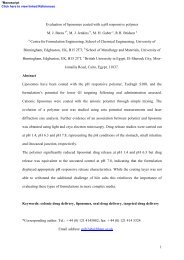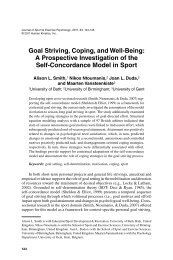A systematic review of the effectiveness of adalimumab
A systematic review of the effectiveness of adalimumab
A systematic review of the effectiveness of adalimumab
Create successful ePaper yourself
Turn your PDF publications into a flip-book with our unique Google optimized e-Paper software.
Since <strong>the</strong> last NICE guidance <strong>the</strong> use <strong>of</strong> TNF<br />
inhibitors to treat RA has become established<br />
practice in rheumatology in <strong>the</strong> UK. Use <strong>of</strong><br />
infliximab requires day-case facilities by<br />
rheumatology departments because it is given<br />
intravenously. At present, <strong>the</strong>re is great variation<br />
in use <strong>of</strong> day-case facilities by rheumatologists,<br />
determined in part by local resources <strong>of</strong> inpatient<br />
and outpatient facilities. Widespread use <strong>of</strong><br />
<strong>adalimumab</strong> and etanercept places a greater<br />
demand on outpatient facilities and requires<br />
greater involvement <strong>of</strong> outpatient nurses in order<br />
that patients and carers may be taught to selfadminister<br />
injections, and to provide back-up in<br />
case <strong>of</strong> difficulties and disease and drug<br />
monitoring services. Again, <strong>the</strong>re are great<br />
variations in use <strong>of</strong> nurse specialists in<br />
rheumatology and relatively few training<br />
opportunities for nurses wishing to specialise in<br />
Chapter 6<br />
Factors relevant to <strong>the</strong> NHS<br />
© Queen’s Printer and Controller <strong>of</strong> HMSO 2006. All rights reserved.<br />
Health Technology Assessment 2006; Vol. 10: No. 42<br />
this area. However, increasing use <strong>of</strong> DMARDs has<br />
led to an increasing requirement for specialised<br />
nurses.<br />
The long-term impact <strong>of</strong> TNF inhibitors on joint<br />
failure and <strong>the</strong> likelihood <strong>of</strong> orthopaedic surgery<br />
cannot be demonstrated directly at present<br />
because <strong>the</strong> agents are still relatively new.<br />
Surrogate end-points such as radiographic change<br />
suggest potentially important benefits, and<br />
potentially a reduced demand for surgery, but <strong>the</strong><br />
clinical relevance <strong>of</strong> reported radiographic<br />
changes is debated. 45<br />
Finally, issues <strong>of</strong> equity have been highlighted by<br />
<strong>the</strong> wide variation in availability <strong>of</strong> TNF inhibitors<br />
across <strong>the</strong> UK, and <strong>the</strong>se have continued despite<br />
NICE guidance.<br />
115



